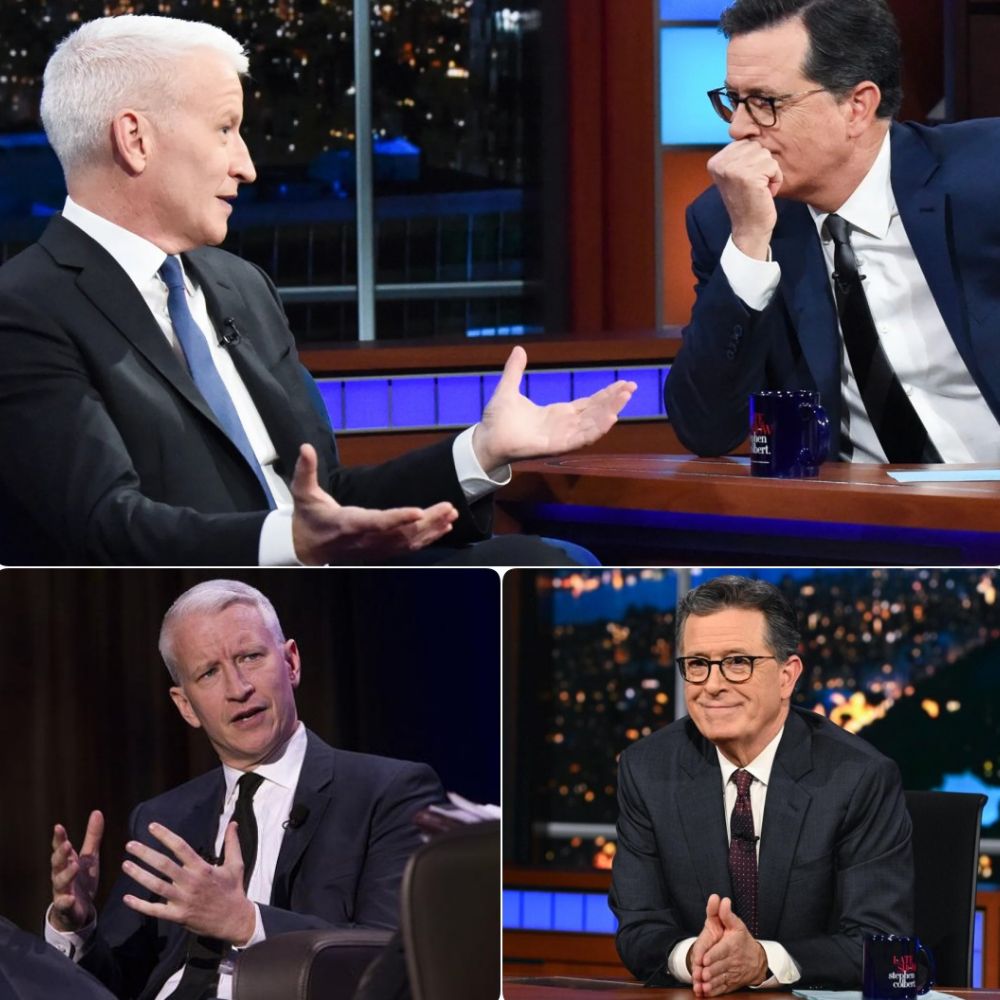Anderson Cooper EXPOSES Pentagon’s “New Media Rules” — “It’s All Based on a Lie”

On a recent episode of The Late Show with Stephen Colbert , CNN anchor Anderson Cooper offered a candid and forceful critique of the Pentagon’s controversial new restrictions on journalists—a policy that has prompted major news organizations, including CNN and Fox News, to refuse to sign on.
The Department of Defense recently introduced a set of strict new rules for journalists covering the Pentagon, setting a deadline for news outlets to agree to these terms. The new guidelines, according to Cooper, paint a misleading picture of how journalists operate within the Pentagon, suggesting that reporters are recklessly wandering through secure areas, bursting into classified meetings, or even forcing their way onto military helicopters.
Cooper was unequivocal in his assessment:
“The portrayal of it is based on a lie. We’ve heard far too many lies. It’s really disappointing.”
When asked directly by Colbert, Cooper confirmed that CNN and Fox News are both refusing to comply with the new Pentagon rules. The reason, he explained, is simple: the premise behind the restrictions is not only false, but also dangerous for democracy.
Cooper dismissed the Pentagon’s justification as a fabrication:
– Reporters at the Pentagon have badges.
– They know the rules.
– No one goes into classified areas without authorization.
He emphasized that the idea of journalists “randomly roaming” and seeking state secrets is not only untrue, but also undermines the vital role of the press in holding power to account.
Cooper stressed the critical importance of independent journalism, especially in matters of national security:
“Whatever you think of reporters, it’s important that you have people asking questions… There are many forms of patriotism, and telling the truth is one of them.”
He cited historical examples, such as the Vietnam War, when journalists uncovered false information provided by the Department of Defense—specifically inflated body counts and misleading reports. Legendary broadcaster Walter Cronkite’s on-the-ground reporting was instrumental in revealing the truth to the American public.
Cooper warned that relying solely on information “spoon-fed” by those in power—regardless of political affiliation—is “incredibly dangerous.” He argued that the American people deserve transparency and multiple sources of information, not just official narratives.
Colbert asked how the press approaches reporting on classified material. Cooper clarified that responsible journalists do not reveal sources, methods, or sensitive operational details. Their goal is not to endanger national security, but to inform the public and ensure government accountability.
“Reporters are patriotic also. They want good things for America. The government doesn’t always tell the truth.”
Ultimately, Cooper pointed out that even if reporters lose their office space inside the Pentagon, it won’t stop them from doing their jobs.
“You can talk to these guys at a Starbucks… There are people in the Department of Defense who want to talk to reporters for a variety of reasons.”
He called the new rules “very unfortunate,” but reassured viewers that committed journalists will continue to seek the truth—regardless of obstacles.
Anderson Cooper’s remarks highlight a fundamental principle of democracy: a free and independent press is essential for holding those in power accountable. The Pentagon’s new media rules, “based on a lie,” threaten that principle. By refusing to comply, major news organizations are standing up for transparency, truth, and the public’s right to know.